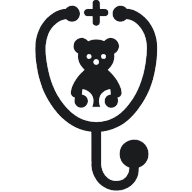In the realm of child healthcare, nothing is more critical than education. This blog post aims to shed light on the vast array of pediatric health education resources available to parents, caregivers, and healthcare professionals. We'll delve into the importance of these resources, their types, and how they can be effectively utilized to ensure optimal health outcomes for children.
The Importance of Pediatric Health Education
Pediatric health education plays an indispensable role in the overall well-being of children. It equips parents, caregivers, and healthcare professionals with the knowledge they need to ensure children's optimal health.
Understanding the basics of child health, including nutrition, immunization, and disease prevention, can significantly reduce the risk of health complications. Moreover, it can foster a healthier lifestyle that children can carry into adulthood.
Pediatric health education also empowers parents and caregivers. It provides them with the tools they need to make informed decisions about their child's health. This empowerment can lead to improved health outcomes and a better quality of life for children.
Types of Pediatric Health Education Resources
A myriad of pediatric health education resources are available, each designed to cater to different needs and learning styles.
Books and pamphlets provide detailed information on various health topics. They are often available in healthcare facilities and can be a great starting point for parents and caregivers seeking to understand more about their child's health.
Online resources, such as websites and blogs, offer a wealth of information at your fingertips. They can provide up-to-date, evidence-based information on a wide range of pediatric health topics.
Interactive tools, such as apps and online games, can make learning about health fun and engaging for children. They can teach children about healthy habits, nutrition, and more in a way that they can easily understand and enjoy.
Workshops and seminars provide an opportunity for parents and caregivers to learn from healthcare professionals. They can ask questions, share experiences, and gain practical skills.
Utilizing Pediatric Health Education Resources Effectively
To make the most of pediatric health education resources, it's important to understand how to use them effectively.
Start by identifying your needs. What information are you seeking? Are you looking for general information or something more specific? Once you've identified your needs, you can choose the resources that best meet them.
Ensure the resources you use are credible. Look for resources from reputable sources, such as healthcare organizations and educational institutions. These resources are likely to provide accurate, evidence-based information.
Don't be afraid to ask questions. If you're unsure about something, seek clarification from a healthcare professional. They can provide you with the information you need and guide you to additional resources if necessary.
The Role of Healthcare Professionals in Pediatric Health Education
Healthcare professionals play a crucial role in pediatric health education. They are a valuable source of information and guidance for parents and caregivers.
Healthcare professionals can provide personalized advice based on a child's specific health needs. They can explain complex medical terms and procedures in a way that's easy to understand.
They can also guide parents and caregivers to appropriate resources. If a parent or caregiver is seeking information on a specific health topic, a healthcare professional can recommend resources that provide accurate, comprehensive information.
Healthcare professionals can also provide practical skills training. For example, they can teach parents and caregivers how to administer medication, perform basic first aid, and more.
The Future of Pediatric Health Education
The field of pediatric health education is constantly evolving, with new resources and technologies emerging all the time.
Digital technology, in particular, is revolutionizing the way we access and consume health information. Apps, online platforms, and virtual reality are just a few examples of how technology is making health education more accessible and engaging.
In the future, we can expect to see even more innovative solutions. These could include AI-powered health apps, virtual reality simulations for health education, and more.
Despite these advancements, the importance of human interaction in health education should not be overlooked. Healthcare professionals will continue to play a crucial role in providing personalized advice and guidance.
Conclusion
Pediatric health education is a vital aspect of child healthcare. It empowers parents, caregivers, and healthcare professionals with the knowledge and skills they need to ensure children's optimal health.
A wide range of resources are available, from books and pamphlets to online resources and interactive tools. To make the most of these resources, it's important to identify your needs, ensure the resources are credible, and don't hesitate to ask questions.
Healthcare professionals play a crucial role in pediatric health education, providing personalized advice and guiding parents and caregivers to appropriate resources. Despite advancements in technology, their role remains vital.
The future of pediatric health education looks promising, with new technologies making health education more accessible and engaging. However, the importance of human interaction in health education remains paramount.
Wrapping Up: Pediatric Health Education Resources Unveiled
The landscape of pediatric health education is vast and ever-evolving. As we navigate this terrain, it's crucial to remember the importance of these resources in ensuring the health and well-being of our children. By utilizing these resources effectively and seeking guidance from healthcare professionals, we can empower ourselves with the knowledge needed to make informed decisions about our children's health. As we look to the future, we can anticipate even more innovative and accessible ways to educate ourselves and our children about health.

